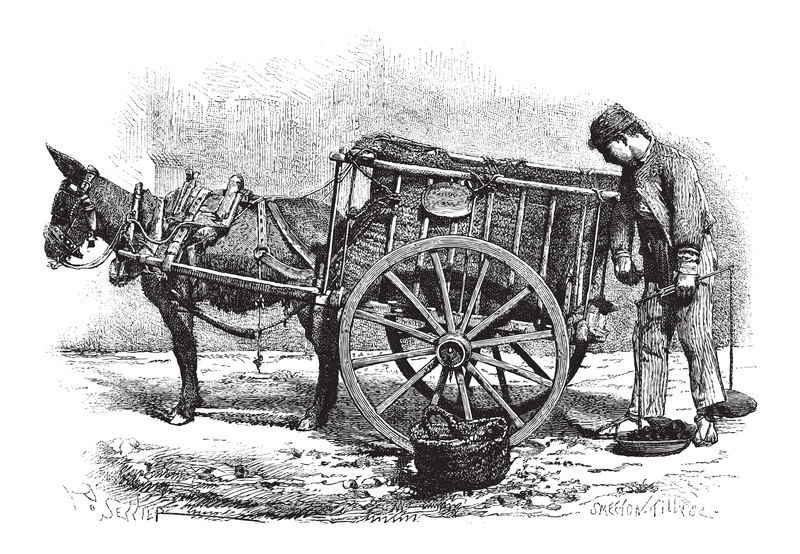
10 Practical Approaches to Green Waste Reduction
Green waste, also referred to as organic or garden waste, is increasingly becoming a concern for environmentalists. Thanks to urban sprawl and consumerism, the level of green waste generated globally is at an all-time high. Understanding how to manage green waste efficiently can have a significant positive impact on both the environment and economy. This article explores 10 practical approaches to reduce green waste.
1. Composting: Nature's Recycling
Composting remains one of the most effective ways to reduce green waste. By breaking down organic matter into nutrient-rich compost, we not only reduce waste but also enhance soil quality. Here are some simple steps for composting:
- Choose a Location: Opt for a shaded spot with good drainage.
- Layering: Alternate between dry and wet materials such as dead leaves and kitchen scraps.
- Aeration: Turn the pile regularly to introduce oxygen.
- Moisture: Ensure the pile remains damp but not waterlogged.
Composting not only helps in waste reduction but also enriches your garden soil.
2. Adopt a Zero Waste Mindset
Adopting a zero waste lifestyle involves conscious decision-making to minimize waste. This approach not only includes reducing and reusing green materials but also encourages thoughtful consumption. To transition towards this:
- Purchase Responsibly: Buy only what you need to avoid excess.
- Reuse Materials: Find ways to repurpose organic materials instead of disposing of them.
- Educate: Share knowledge on zero waste practices with friends and family.
The less we consume and discard, the less green waste we produce.
3. Vermicomposting: The Power of Worms
Utilize worms to break down organic food waste through vermicomposting. This method is immensely helpful for those with limited outdoor space:
- Create a Worm Bin: Use containers suitable for housing worms and aeration.
- Feed Appropriately: Provide scraps like fruit and vegetable peels while avoiding dairy and meat.
- Maintain the Bin: Ensure optimal moisture, temperature, and avoid overfeeding.
Vermicomposting provides nutrient-dense soil while significantly reducing green waste.
4. Community Gardening Initiatives
Community gardens are increasingly popular and contribute to localized waste reduction. Participating in or initiating a community garden can help manage green waste jointly:
- Shared Composting: Establish communal composting areas.
- Exchange and Share: Swap surplus produce or materials among gardeners.
By participating, we foster a sustainable community mindset while tackling green waste collectively.
5. Reduce Food Waste at Home
Households are major contributors to landfill waste due to food wastage. Here's how you can start minimizing this:
- Meal Planning: Strategize meals to avoid excess cooking and spoilage.
- Proper Storage: Learn and apply methods to store perishables effectively.
- Creative Leftover Usage: Innovate with leftovers to ensure nothing goes to waste.
Decreasing household food waste results in a corresponding drop in overall green waste.
6. Recycle Yard Waste
Recycling yard waste can turn garden refuse into valuable resources:
- Turn Leaves and Grass into Mulch: Reduce your lawn clippings and leaves to mulch for plant beds.
- Wood and Branches: Use shredded branches for pathways or mulch.
Yard waste recycling is a simple and effective method to reduce green waste.
7. Biodegradable Products Utilization
Switching to biodegradable products for everyday use can significantly reduce green waste:
- Prioritize biodegradable packaging when shopping.
- Replace traditional plastic bags with compostable alternatives.
Utilizing biodegradable products ensures a swift return of materials back into the ecosystem.
8. Efficient Lawn Management
Lawn care is a significant part of green waste. Implementing smart strategies can help reduce waste:
- Grasscycling: Leave grass clippings on the lawn to decompose naturally.
- Right Plant Choices: Opt for native plants that require less upkeep.
By optimizing lawn management, we minimize the amount of waste produced and maintain the health of our gardens.
9. Conduct Workshops and Training
Knowledge dissemination through workshops can promote widespread green waste management practices:
- Organize Events: Host workshops in local communities.
- Online Training: Provide online resources and tutorials on green waste reduction.
Educating communities about green waste reduction leads to a larger collective impact.
10. Collaborate with Local Governments
Collaboration with local government bodies can enhance waste management strategies:
- Implement Local Policies: Advocate for sustainable waste management policies.
- Incentive Programs: Encourage participation through government incentives for waste reduction.
Collaboration with government authorities offers structured support for reducing green waste on a larger scale.
Conclusion
Reducing green waste is not just an environmental responsibility, but it is also economically beneficial. By employing these practical approaches to green waste reduction, we can create a sustainable environment for future generations. Whether it's through composting, community engagement, or collaborating with governments, every action counts. Start today, and be part of the solution to reduce and manage green waste effectively.
